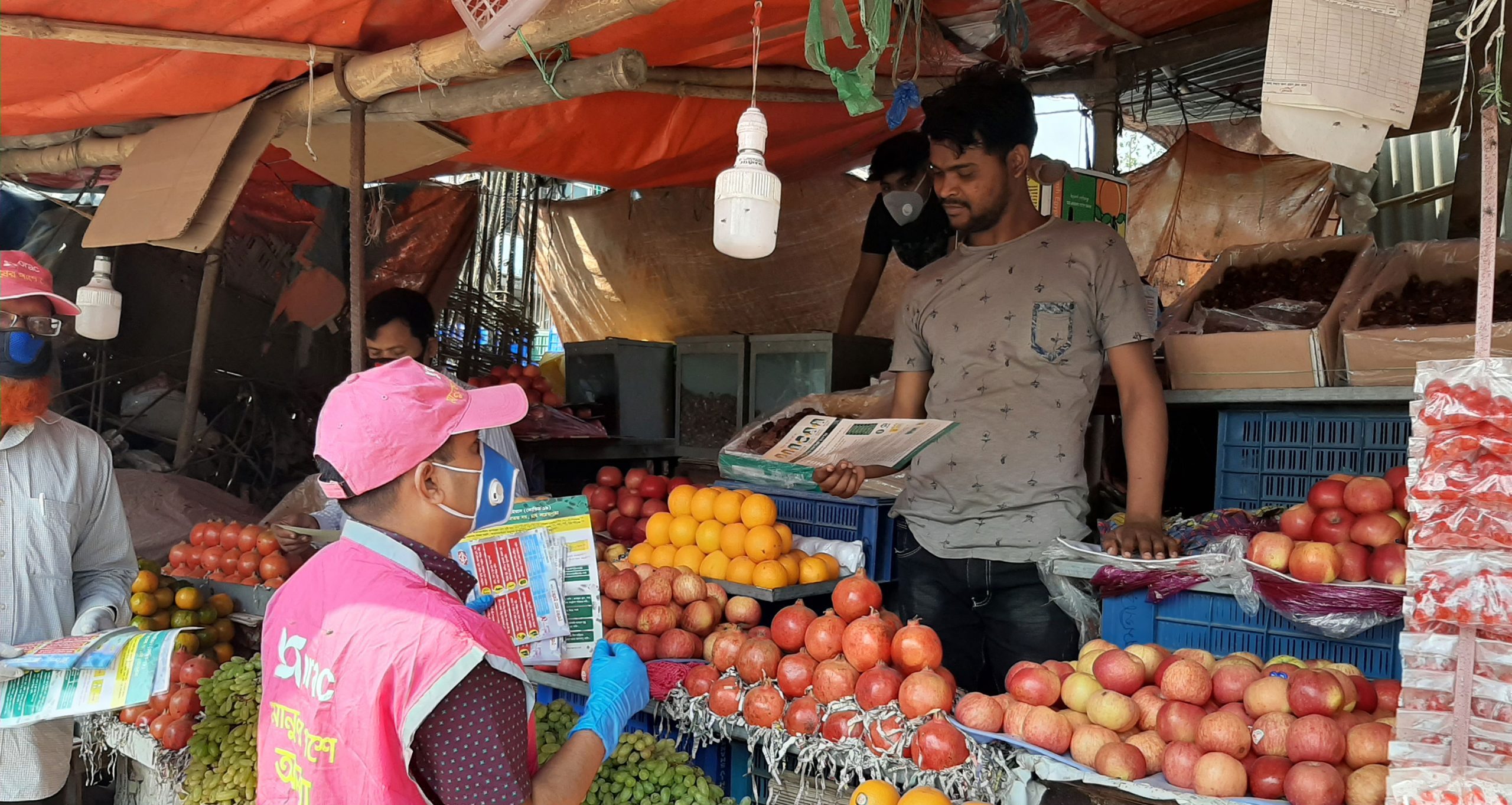Opinion: How financial inclusion can build economic resilience in the wake of COVID-19
As the COVID-19 crisis takes a massive economic toll, financial inclusion will be critical to helping the poor recover. Microfinance institutions should work in tandem with businesses to build community resilience and boost economic growth.

By Lewis Temple
This piece was originally published here in Business Fights Poverty. It has been reposted below.
COVID-19 has impacted nearly everyone around the globe, but its impacts are particularly acute for people in poverty. As governments restrict gatherings, health authorities recommend social distancing, and markets panic, the outbreak poses a disproportionate threat in the Global South.
At the same time, many microfinance institutions (MFIs) face threats to staff safety and operational viability, threatening access to financial inclusion. Microfinance is a crucial tool for poor households to smooth consumption, invest in small businesses, build resilience, and cope with shocks—shocks that today threaten to plunge half a billion people into poverty and jeopardize decades of progress towards the Sustainable Development Goals (SDGs) from governments, civil society, and the business community. Drawing on BRAC’s experience lending in crises, here are three ways that MFIs and businesses can partner to invest in local economies and communities as they face COVID-19.
1. Reinforcing financial resilience
Lockdown measures and social distancing regulations have drastically impacted people living in poverty. A recent rapid assessment by BRAC in nine countries across South Asia and sub-Saharan Africa revealed the majority of respondents are experiencing food insecurity and sharp drops in income, and a similar survey in Bangladesh suggested household incomes have declined by 69% in urban areas and 80% in rural areas. Access to credit is critical to enable families to keep small businesses afloat and cover necessary expenses such as nutritious food, medical care, and school fees.
While social distancing regulations pose challenges for continued lending, MFIs can take several immediate steps to support families affected by the crisis, such as offering revised repayment schedules and waiving interest for borrowers struggling to repay loans. In the aftermath of West Africa’s Ebola outbreak in 2014, BRAC created flexible repayment schedules for borrowers in Liberia and Sierra Leone. In a retrospective case study, BRAC found this helped borrowers bounce back after the crisis and resume businesses, ultimately enabling them to pay back their installments and take out new loans. By working hand-in-hand with businesses, MFIs could create more flexibility for clients in crisis and amplify the impact of these measures on local economies.
2. Engaging frontline staff
While many MFIs have closed branches and suspended loan collections and disbursements in order to safeguard clients and staff, frontline staff can still play a role as the pandemic continues. As the COVID-19 crisis escalated this spring, BRAC paused microfinance operations across seven countries for various durations in consideration staff and client safety and in line with local directives. But it has continued to pay salaries for its 34,000 frontline staff despite branch closures.
In a post-Ebola assessment, BRAC found that paying staff through closures reassured field-level staff that their jobs would still be intact after the epidemic, and as a result, they maintained regular communication with clients, helping to maintain relationships and enabling staff to more quickly re-deploy. This helped BRAC smoothly resume operations as the crisis wound down and rapidly serve clients in critical need of credit to aid in their financial recoveries. Following a similar approach for the COVID-19 pandemic, MFIs can work with businesses to invest in frontline staff and help accelerate the recovery process for the communities where they work once the crisis subsides.
3. Building public health awareness across communities
MFIs and their frontline staff can also play a vital role during the pandemic that is beyond their usual scope: Spreading life-saving information. Public health awareness is undoubtedly key to minimizing the health and economic toll of the pandemic, and community-based MFIs are well positioned to raise awareness among client communities that may not have access to the internet or reliable information. By partnering with MFIs to roll out public health initiatives, businesses can mitigate the impact of the pandemic in their supply chain in a cost-effective way.
Leveraging BRAC’s last-mile network and guided by local public health recommendations, we have enlisted and trained our frontline microfinance staff to spread messages on preventing COVID-19 through hand hygiene and social distancing and distribute supplies like soap and sanitizers in client communities. A similar approach proved crucial in the aftermath of the Ebola outbreak. Because BRAC’s frontline staff continued to engage with clients and connected them to lifesaving information and services, borrowers were able to bounce back more quickly after the crisis.
Partnering to invest in the future
It is still unclear exactly how the pandemic will unfold in the Global South and how long its effects will last. But in its aftermath, MFIs will play an important role in financing individual families and reviving local economies. As we have seen after past crises, there will be increased demand for loans to inject in businesses, buy productive assets, and boost consumption in the hardest hit communities.
Stakeholders around the globe have made tremendous progress towards the SDGs, but now that progress is at risk, and those in poverty will be hit the hardest. But through partnership, we can amplify our impact now. As MFIs navigate the uncertainties of COVID-19, injecting cash into client hands, fostering relationships with clients, and promoting public health are critical investments in local economies and communities. MFIs should work in tandem with businesses and other partners to make these investments. Together, we can amplify our impact to boost economic growth and community resilience.
Lewis Temple is Chief Executive Officer for BRAC UK.